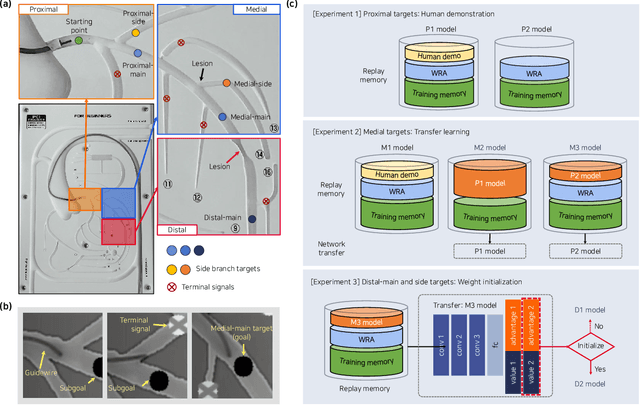Kyunghwan Kim
Deep reinforcement learning for guidewire navigation in coronary artery phantom
Oct 05, 2021



Abstract:In percutaneous intervention for treatment of coronary plaques, guidewire navigation is a primary procedure for stent delivery. Steering a flexible guidewire within coronary arteries requires considerable training, and the non-linearity between the control operation and the movement of the guidewire makes precise manipulation difficult. Here, we introduce a deep reinforcement learning(RL) framework for autonomous guidewire navigation in a robot-assisted coronary intervention. Using Rainbow, a segment-wise learning approach is applied to determine how best to accelerate training using human demonstrations with deep Q-learning from demonstrations (DQfD), transfer learning, and weight initialization. `State' for RL is customized as a focus window near the guidewire tip, and subgoals are placed to mitigate a sparse reward problem. The RL agent improves performance, eventually enabling the guidewire to reach all valid targets in `stable' phase. Our framework opens anew direction in the automation of robot-assisted intervention, providing guidance on RL in physical spaces involving mechanical fatigue.
 Add to Chrome
Add to Chrome Add to Firefox
Add to Firefox Add to Edge
Add to Edge